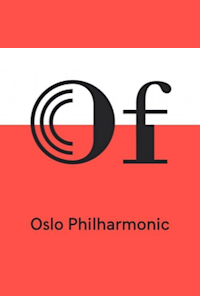Tchaikovsky fifth and a new clarinet concerto
Tchaikovsky was convinced that his fifth symphony was a fiasco. More than fifty years later, it comforted his sorely tried countrymen during the Second World War.
When Pyotr Tchaikovsky started his fifth symphony in the spring of 1888, ten years had passed since he completed his fourth. In the meantime he had written four operas and the unnumbered Manfred Symphony, and his international recognition was steadily on the rise. After a number of sweltering, intense months of work over the summer, the symphony was complete in August, and it received its world premiere in St. Petersburg in November the same year.
As in the fourth symphony, it is the individual’s battle with destiny which constitutes an underlying theme. Tchaikovsky wrote extensively about the thought process underpinning the fourth symphony, and we know much more about this than about the fifth. But like in its predecessor, the central musical theme in this symphony can be linked to the concept of destiny. It introduces the symphony in a minor key, reoccurs in all the movements, and concludes the piece in a major key in the triumphant fourth movement.
Tchaikovsky was, as usual, insecure in his own views about the symphony. Shortly after it was completed, he expressed the opinion that it was on the level of his best work. But after experiencing an extremely mixed reception, with certain reviews bordering on slaughter, he considered the work a fiasco.
But the popularity of the symphony grew and endured, not least because of the famous horn solo in the second movement, and with “triumph through battle” as an underlying theme it was played often during the Second World War - also during the siege of Leningrad in 1941. After the war it has retained its position in concert halls the world over.
Bjørn Kruse is a painter, composer, writer and professor at Norges Musikkhøgskole, and has a background in both pop and jazz. Chronotope - which can be translated as “time-place” − is a concert for clarinet and large orchestra which he has written for the Oslo Philharmonic’s principal clarinet player Fredrik Fors.
In the wake of a great career as a cellist, Han-Na Chang is increasingly in demand as a conductor. She is principal guest conductor of the Trondheim Symphony Orchestra and this will be her debut with the Oslo Philharmonic.
